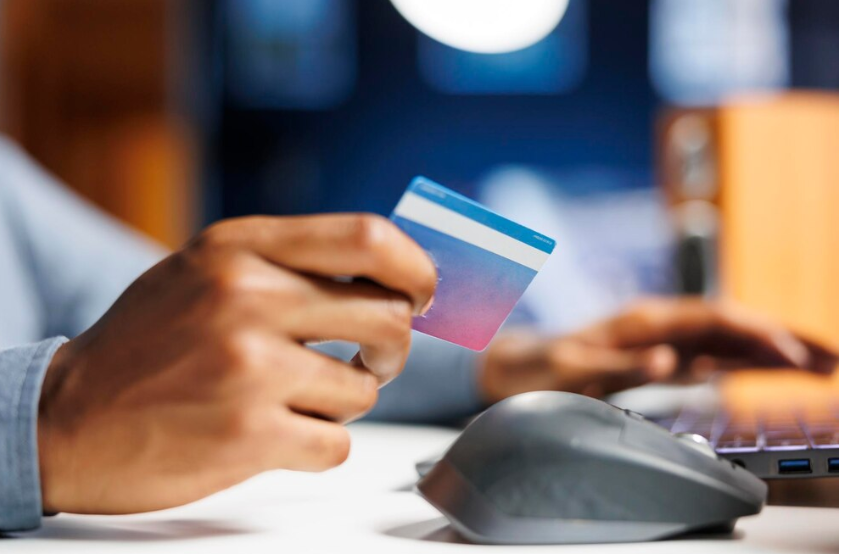We live in a time where digital transactions have become the standard, and keeping your debit card information safe online is necessary. With cyber threats evolving at an alarming rate, it’s crucial to stay ahead with effective safety measures.
This article offers ten essential tips for keeping your debit card secure online, ensuring your financial data remains protected from unethical factors.
-
Use Strong, Unique Passwords for Banking Accounts
The first line of defence against cyber threats is a strong password.
-
Mix of Characters: Ensure your password is a complex mix of numbers, letters, and special characters. For example, instead of using ‘password123’, opt for ‘Pa$$w0rd!23#’.
-
Unique Passwords for Different Accounts: Avoid using the same password across different sites. If one account gets compromised, others remain safe.
-
Activate Two-Factor Authentication (2FA)
Two-factor authentication adds an extra layer of security to your online banking transactions.
-
Secondary Verification: After entering your password, you’ll get a second verification step, a code sent to your phone or email.
-
Use Authentication Apps: Use authentication apps instead of SMS for codes, as they’re more secure against interception.
-
Be Wary of Public Wi-Fi Networks
Public Wi-Fi networks are hotspots for hackers to steal sensitive information.
-
Avoid Banking Transactions: Never access your banking account or perform transactions while connected to public Wi-Fi.
-
Use a VPN: If you have to use public Wi-Fi and have no other choice, make sure you’re connected to a VPN (Virtual Private Network) to keep your data safe.
-
Monitor Your Accounts Regularly
Keeping an eye on your account can help you catch and report any unauthorised transactions early.
-
Check Statements: Regularly review your account statements for charges you don’t recognise.
-
Set Alerts: Most banks allow you to set alerts for transactions over a certain amount, helping you monitor your account activity.
-
Understand the Security Code on Debit Card
The security code on your debit card is crucial for online transactions but should never be shared lightly.
-
Keep it Confidential: Only enter your security code on trusted and secure websites.
-
Phishing Awareness: Be aware of phishing attempts asking for your card details, including the security code on the debit card.
-
Use Secure and Reputable Payment Gateways
When shopping online, the security of the payment gateway is as significant as the website’s credibility.
-
Look for HTTPS: Ensure the website’s address starts with ‘https://’- a sign for a secure connection.
-
Payment Gateway Reputation: Opt for well-known payment gateways with a proven track record of security.
-
Educate Yourself on Debit Card Annual Charges
Being informed about your debit card annual charges and transaction fees can help you spot any type or errors.
-
Read the Terms: Know what fees you should expect for card usage- domestically and internationally.
-
Dispute Unauthorised Fees: If you notice unexpected debit card annual charges, contact your bank immediately to dispute them.
-
Set Up Spending Limits
Most banks allow you to set daily spending limits on your debit card, adding an extra layer of control.
-
Limit Transactions: Setting a lower limit on your card can minimise potential losses in case of fraud.
-
Customise According to Need: Adjust your spending limit based on your typical usage, but keep it reasonably low to safeguard against theft.
-
Opt for Virtual Cards for Online Purchases
Virtual cards provide a temporary card number for online transactions, keeping your actual card information safe.
-
Single-Use Numbers: Use a virtual card number that expires after one transaction, providing no value to potential hackers.
-
Limit Exposure: Even if a virtual card number gets compromised, your primary card remains secure.
-
Stay Informed About the Latest Security Threats
Staying updated on the latest cyber threats can help you take proactive measures to protect your card.
-
Follow Trusted Sources: Regularly check updates from your bank and reputable cybersecurity news platforms.
-
Implement Security Recommendations: Apply security updates and recommendations from your bank to ensure your card’s safety.
Conclusion
In the digital age, the ease of online transactions comes with the responsibility of caution. By implementing these ten debit card safety tips, you can enjoy the benefits of online shopping and banking effortlessly, knowing your financial data is secure.
Always remember that the key to safeguarding your financial information lies in technology, awareness, and common sense. Stay safe, stay secure, and make the most of your online financial activities confidently.


